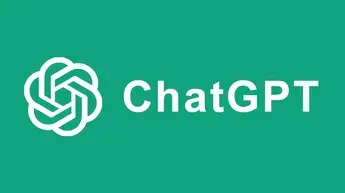After enduring three years of relentless pain and visiting 17 doctors, a determined mother, Courtney, found a glimmer of hope through the power of artificial intelligence. Her son, Alex, aged four, had been experiencing unexplained chronic pain, toothache-like symptoms, and stunted growth. Doctors had been baffled, leaving Courtney desperately seeking answers.
Courtney recounted her ordeal, stating, “I have to give him Motrin (pain relieving drug) every day, or he has these gigantic meltdowns. If he had Motrin, he was totally fine.” As the symptoms persisted, and Alex’s growth seemed stunted, she tirelessly pursued medical consultations, even leading to an emergency room visit.
The COVID-19 pandemic exacerbated the situation when Alex began chewing on objects, causing him excruciating pain. Courtney’s quest for a diagnosis proved futile until she decided to turn to AI for assistance, particularly OpenAI’s ChatGPT.
Desperate for answers, Courtney created an account and shared details about Alex’s symptoms with ChatGPT. To her astonishment, the AI-driven tool provided a potential diagnosis: tethered cord syndrome, a rare neurological condition where the spinal cord is attached to surrounding tissues, leading to restricted movement and various neurological problems.
Courtney joined a Facebook group of parents whose children also suffered from tethered cord syndrome and meticulously compared her son’s MRI notes with ChatGPT’s suggestions. Armed with this newfound information, she scheduled an appointment with a neurosurgeon, who confirmed Alex’s condition and recommended surgery.
Tethered cord syndrome, often congenital but not immediately noticeable, typically manifests in childhood or adolescence. Symptoms include leg weakness, numbness, tingling, walking difficulties, muscle atrophy, bladder or bowel control issues, and physical signs like an unusual dimple or fatty tumor in the lower back.
Dr. Sudhir Kumar of Apollo Hospitals, Hyderabad, emphasized that the condition cannot be prevented, and early surgical intervention offers the best outcome.
ChatGPT’s role in diagnosing medical conditions is gaining recognition, with previous instances of its successful diagnoses, including a Twitter user’s pet dog. The tool has proven to be a valuable resource for individuals seeking answers when conventional medical avenues fall short.
Courtney’s relentless pursuit of answers, coupled with AI’s assistance, led to the revelation of Alex’s tethered cord syndrome, highlighting the potential of AI-driven tools in solving complex medical mysteries and providing much-needed relief for patients and their families.

